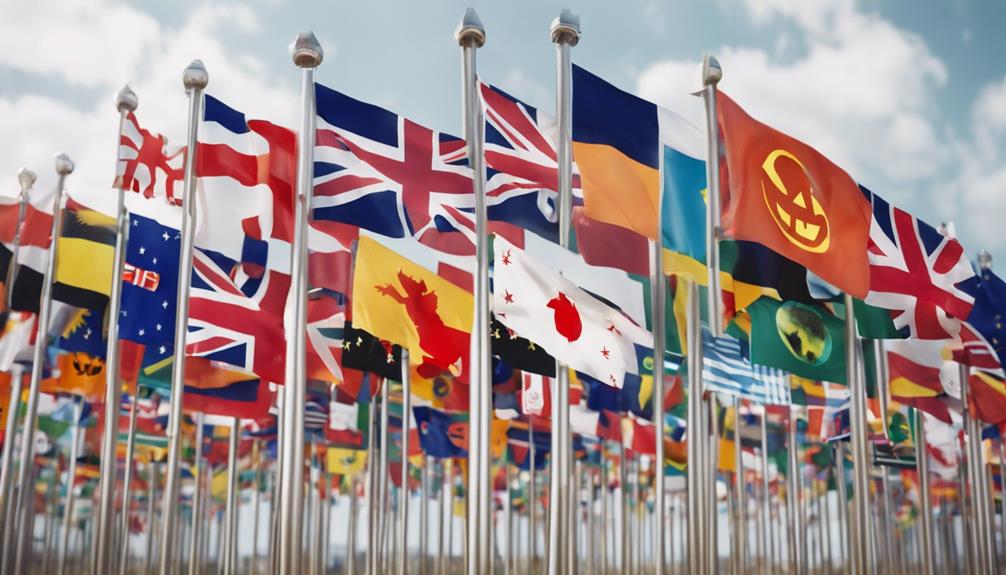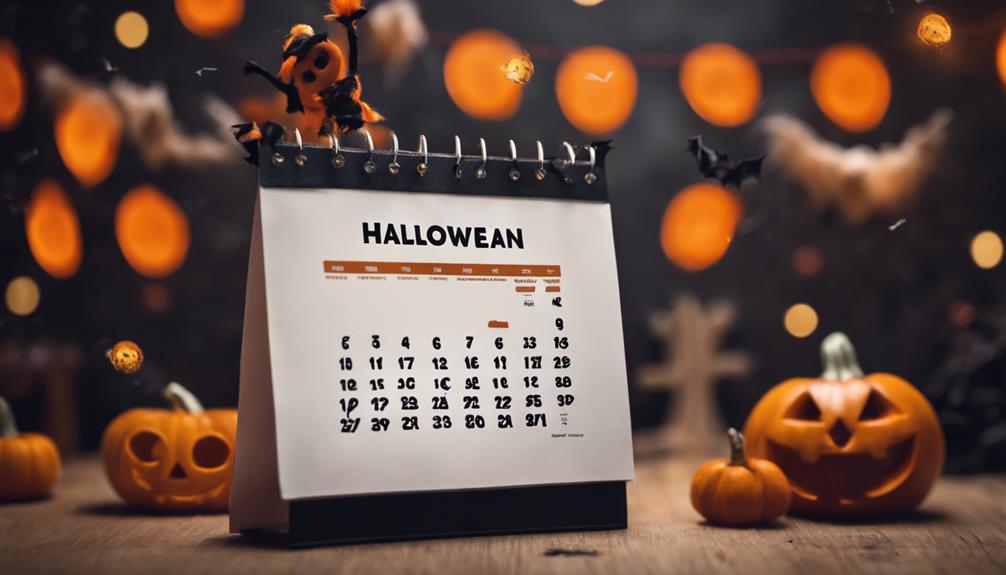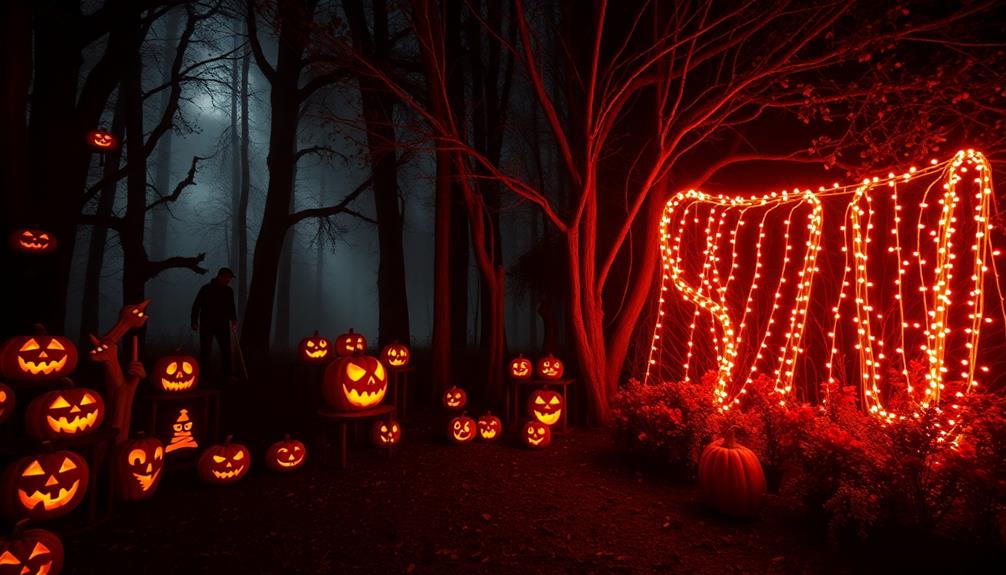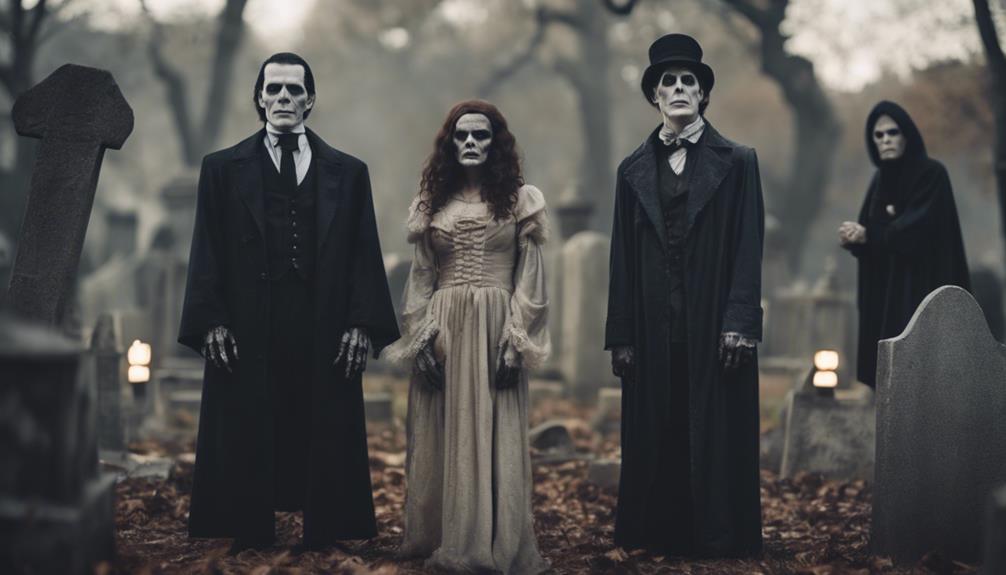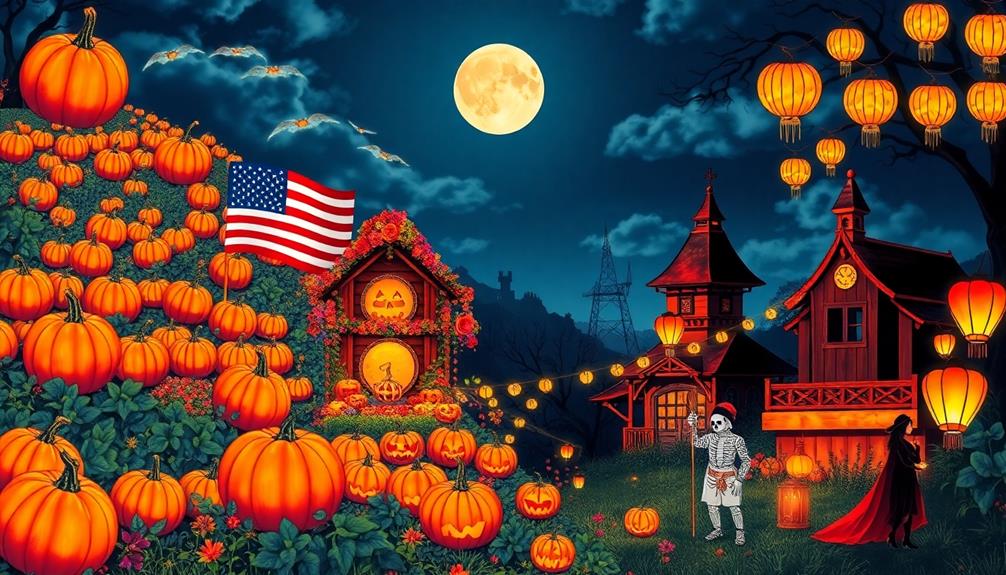In Asia, Middle Eastern nations, and Africa, Halloween isn't widely celebrated due to unique traditions, religious beliefs, and a focus on local customs over Western holidays. Asian countries like Mongolia and China have their own cultural practices, while the Middle East's Islamic influence plays a key role in the absence of Halloween festivities. In Africa, beliefs in witchcraft and resistance to cultural dominance shape Halloween's lack of popularity. Explore more reasons why specific countries eschew Halloween to understand the diverse cultural landscapes that influence festive traditions worldwide.
Key Takeaways
- Mongolia banned Halloween to protect traditional Buddhist values.
- Rwanda banned Halloween in 2013 to preserve traditional culture.
- Ghana doesn't celebrate Halloween due to beliefs in witchcraft.
- Papua New Guinea traditionally doesn't observe Halloween.
- Australia shows reluctance towards Halloween due to historical factors.
Countries in Asia
In Asia, Halloween isn't widely celebrated compared to other regions. Countries like Mongolia and China have unique traditions that differ from the Western Halloween festivities.
Mongolia, for instance, banned Halloween in schools in 2018 and 2019 due to concerns about eroding traditional Buddhist values. Despite the ban, there's a growing interest in celebrating Halloween among the Mongolian population.
On the other hand, China doesn't extensively celebrate Halloween; instead, they observe the Hungry Ghost Festival, rooted in Buddhist values.
Many Asian countries, influenced by their traditional values, don't extensively partake in Halloween celebrations as seen in Western countries. It's fascinating to see how each nation in Asia upholds its cultural practices, reflecting the diversity and richness of the region.
Middle Eastern Nations

In Middle Eastern nations like Saudi Arabia, Qatar, and Iran, Halloween isn't widely celebrated due to cultural and religious reasons.
The influence of Islam in these countries greatly impacts the lack of Halloween festivities, as traditional customs and religious practices take precedence.
The limited observance of Halloween in the Middle East is a result of the focus on religious holidays and cultural traditions that differ from Western celebrations.
Cultural Traditions and Beliefs
Cultural traditions and beliefs in Middle Eastern nations greatly influence the absence of Halloween celebrations in the region. Countries like Saudi Arabia, Iran, and Afghanistan don't partake in Halloween festivities due to their cultural beliefs and religious holidays. Islamic teachings play a significant role in shaping the way these nations approach holidays and celebrations, focusing more on events that hold religious significance within their communities.
The historical connection to Celtic traditions, which form the basis of Halloween, is lacking in Middle Eastern nations, further contributing to the disinterest in celebrating this particular holiday. Instead, these countries prioritize observing their own cultural traditions and religious festivities that are deeply rooted in their history and beliefs.
In Middle Eastern nations where Islam is the predominant religion, Halloween isn't a recognized or widely observed holiday. The cultural and religious context in these countries plays an essential role in shaping societal norms and practices, leading to the absence of Halloween celebrations in the region.
Lack of Historical Influence
Lacking historical connections to Celtic traditions and Christian holidays like All Saints' Day, Middle Eastern nations such as Saudi Arabia, Iran, and Iraq don't traditionally celebrate Halloween due to cultural and religious reasons.
- Cultural Significance: Halloween isn't a significant part of the cultural calendar in Middle Eastern nations, where other traditional festivals and holidays hold greater importance.
- Religious Observances: The focus on religious observances and local customs in Middle Eastern countries limits the adoption of Halloween as a popular celebration.
- Historical Absence: The lack of historical influence from Celtic traditions and Christian holidays like All Saints' Day contributes to the absence of Halloween in Middle Eastern countries.
- Cultural Landscape: The absence of Halloween in Middle Eastern nations reflects the diverse cultural and religious landscapes that shape the region's traditions and festivities.
In these countries, Halloween isn't widely observed due to the strong influence of other cultural practices and religious beliefs that define their festive calendars.
Religious Considerations and Practices
Religious beliefs in Middle Eastern nations strongly deter the observance of Halloween due to historical conflicts with pagan origins and customs. Countries like Saudi Arabia, Iran, and Pakistan, where Islam is the predominant religion, typically don't partake in Halloween celebrations.
The pagan roots of Halloween clash with the Islamic principles followed in these regions, leading to the holiday not being recognized or widely practiced. In Middle Eastern cultures, the emphasis on religious considerations and adherence to cultural norms discourages the observance of Halloween. The traditions and rituals associated with Halloween don't align with the beliefs and practices upheld in these countries.
As a result, you'll find that Halloween isn't a part of the festive calendar in Middle Eastern nations like Saudi Arabia, Iran, and Pakistan, where religious considerations play a significant role in shaping cultural celebrations.
African Countries

Despite the rich diversity of traditions and celebrations across Africa, Halloween is conspicuously absent in many African countries. Here are some reasons why Halloween isn't widely celebrated in African nations:
- Ghana: Beliefs in witchcraft and the presence of camps for accused witches deter the celebration of Halloween.
- Oceania: Events like the Morobe Show in Papua New Guinea overshadow Halloween, making it a less significant celebration in this region.
- Australia: Opposing seasons and resistance to American cultural dominance contribute to the lack of acknowledgment of Halloween in Australia.
- Rwanda: In an effort to preserve traditional culture and values, Rwanda banned Halloween in 2013.
These factors, ranging from cultural beliefs to societal norms, play a significant role in why Halloween isn't embraced in many African countries. The absence of Halloween in African nations reflects the diverse cultural landscape and the prioritization of indigenous traditions and celebrations.
South and Central America

In South and Central America, the presence of traditional Latin American holidays like Dia de los Muertos often overshadows the celebration of Halloween. Due to strong religious beliefs and cultural traditions, some countries in this region have a lack of Halloween festivities, especially in rural areas. Dia de los Muertos, a significant holiday honoring deceased loved ones, holds more importance than Halloween in many communities.
However, with the influence of American culture, Halloween celebrations have started to gain popularity in urban areas of some South and Central American countries. The commercial aspects of Halloween, such as costumes and decorations, are becoming more prevalent in cities where the younger generation is embracing this tradition.
Despite this shift, the deep-rooted customs and rituals associated with Dia de los Muertos and other traditional Latin American holidays continue to be the focal point of the region's festivities, showcasing the rich cultural tapestry of South and Central America.
Europe
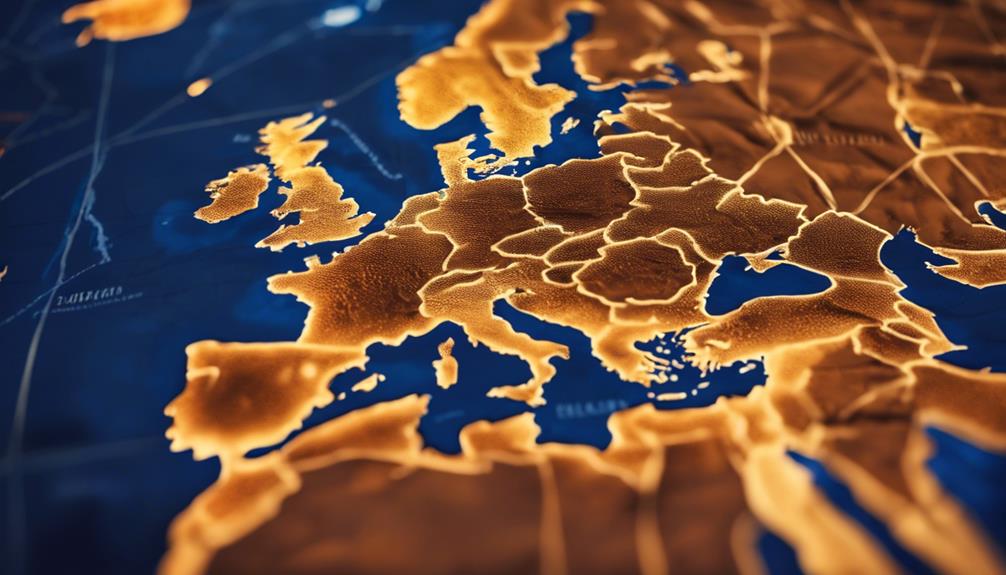
Europe showcases a diverse approach to Halloween celebrations across its various countries. Here's a breakdown of how some European nations view this holiday:
- Russia: Halloween in Russia takes on a mixed approach. While some urban areas may embrace the festivities with decorations and parties, other regions remain indifferent or even oppose the holiday altogether.
- Latvia: Traditionally, Latvia doesn't have a strong Halloween culture. Some Latvians see it as a foreign or commercialized holiday, leading to a lack of widespread celebration across the country.
- Croatia: In Croatia, Halloween celebrations have been gradually increasing in urban areas. However, rural regions may not actively participate in the holiday, resulting in a divide in how different parts of the country engage with Halloween.
- Overall View: Compared to countries like the UK, Ireland, and Germany, Halloween isn't as widely celebrated in Europe. The holiday's popularity varies significantly across the continent, with some nations fully embracing it and others showing more restrained enthusiasm.
Oceania
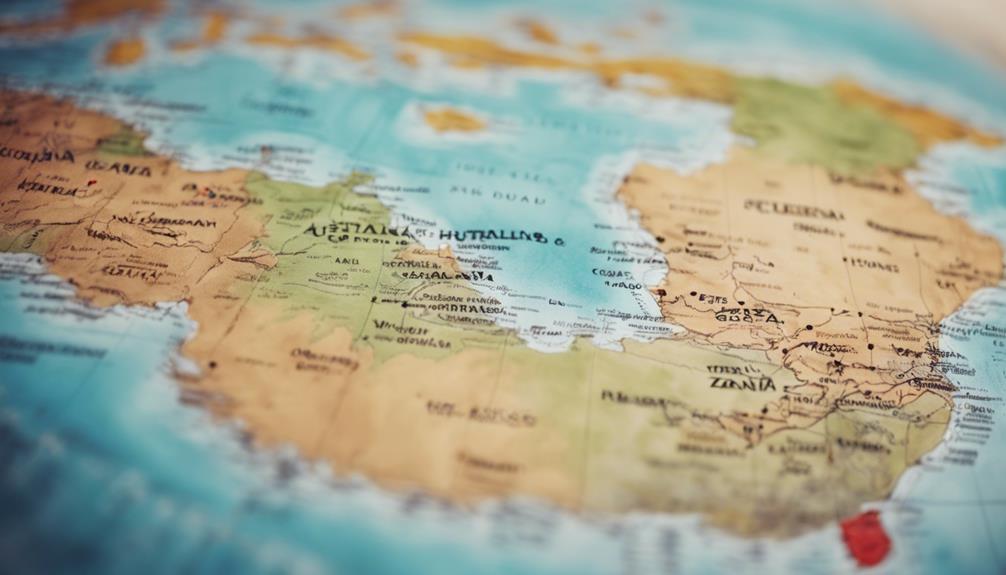
In Oceania, Halloween isn't a prominent celebration, with countries like Papua New Guinea and Australia opting for other traditional festivities over Halloween.
Papua New Guinea's cultural preferences and focus on events like the Morobe Show play a significant role in the lack of Halloween observance.
Australia's historical background and resistance to American cultural influence also contribute to the absence of Halloween celebrations in the region.
Halloween in Oceania
Lacking significant recognition, Halloween in Oceania takes a backseat to traditional events like the Morobe Show in Papua New Guinea. When it comes to celebrating Halloween in Oceania, the focus shifts towards cultural events deeply rooted in the region's traditions and values. Here's why Halloween isn't a prominent affair in Oceania:
- Morobe Show: The Morobe Show in Papua New Guinea draws attention away from Halloween, showcasing the rich cultural heritage of the region.
- Papua New Guinea's Tradition: The cultural emphasis in Papua New Guinea leans towards other festivities, leaving Halloween largely uncelebrated.
- Australia's Stance: Australia's minimal acknowledgment of Halloween can be attributed to seasonal disparities and a reluctance to embrace American cultural influences.
- Oceania's Traditional Events: The preference for traditional events like the Morobe Show diminishes the observance of Halloween across the region, reflecting a deeper connection to local customs.
In Oceania, Halloween struggles to compete with the allure of longstanding cultural celebrations, making it a less prominent occasion in the region.
Cultural Perspectives on Halloween
Cultural perspectives on Halloween in Oceania vary greatly due to the region's strong emphasis on traditional events and local customs. In Australia, Halloween isn't widely celebrated compared to other countries. This lack of enthusiasm can be attributed to historical factors and resistance against American cultural dominance. The opposite seasons also play a role, as Halloween falls during spring in Australia, making it less appealing as a traditional autumn festival.
Oceania, as a whole, doesn't prioritize Halloween due to the presence of other significant cultural and traditional festivities. Papua New Guinea, for instance, focuses on events like the Morobe Show rather than Halloween. The resistance to adopting Halloween reflects a broader trend in Oceania, where local customs hold more sway than imported celebrations. As a result, Halloween hasn't gained the same traction in Oceania as it has in other parts of the world.
Uncommon Knowledge
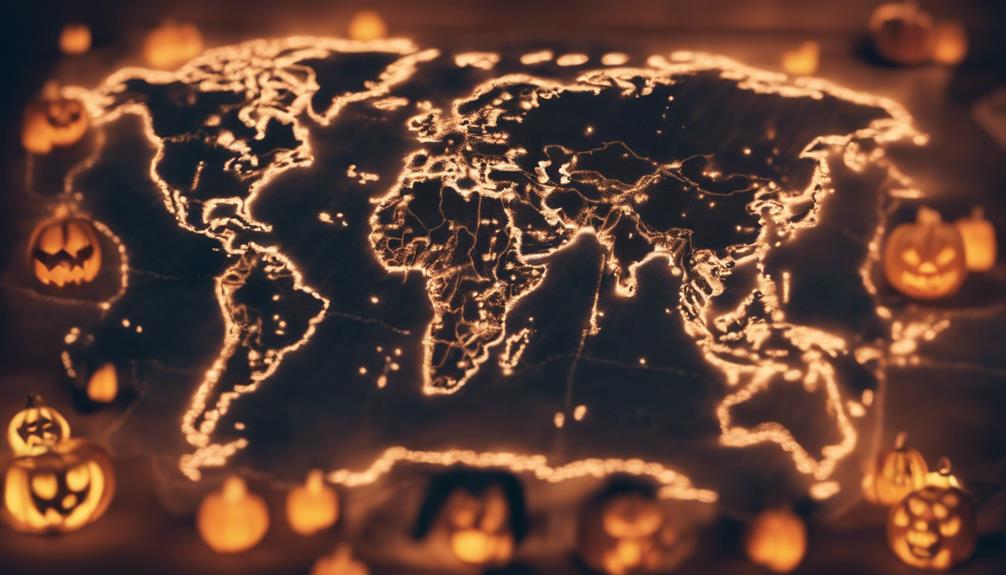
Uncover intriguing insights about countries that opt out of Halloween celebrations.
- Mongolia: The country has banned Halloween due to concerns about eroding traditional Buddhist values.
- Rwanda: Halloween was banned in 2013 to preserve the nation's rich traditional culture.
- Ghana: With a deep-rooted belief in witchcraft, Halloween isn't celebrated in Ghana.
- Papua New Guinea: Traditionally, Halloween isn't observed, with the Morobe Show being a significant event.
These countries have made conscious decisions to abstain from Halloween festivities for reasons deeply rooted in their cultural beliefs and values. From concerns about preserving traditional practices to beliefs in witchcraft, each nation's unique circumstances contribute to the absence of Halloween celebrations. Understanding these cultural nuances sheds light on the diverse perspectives different countries hold regarding this popular holiday.
Frequently Asked Questions
Does Any Country Not Celebrate Halloween?
Yes, some countries don't celebrate Halloween. Reasons vary, such as Mongolia banning it to protect traditional Buddhist values. Rwanda also banned it to preserve cultural traditions. Ghana avoids Halloween due to strong beliefs in witchcraft. Papua New Guinea focuses on other festivals like the Morobe Show.
Australia also minimally acknowledges Halloween, partly in response to American cultural influences. These countries have unique perspectives that shape their approach to Halloween celebrations.
Do Russia Celebrate Halloween?
In Russia, Halloween isn't widely celebrated due to cultural and historical factors. Orthodox Christianity's influence and the perception of Halloween as a commercialized foreign holiday contribute to its low popularity.
Russians prioritize their traditional celebrations over Halloween, leading to minimal observance of the holiday.
Why Don't Brazilians Celebrate Halloween?
In Brazil, the lack of Halloween celebrations stems from the strong influence of local festivals like Carnival and Festa Junina. These traditional Brazilian events take precedence over Halloween due to their deep-rooted cultural significance.
Additionally, the country's limited historical connection to Celtic traditions and the dominance of Catholicism contribute to the minimal observance of Halloween. While some cities may host small events influenced by global trends, Halloween remains a minor observance in Brazil.
Why Don't Germans Celebrate Halloween?
Germans don't celebrate Halloween due to its perceived commercialization and foreign origins. Some view it as an American import conflicting with their cultural traditions. The holiday lacks deep roots in German history or folklore.
Instead, celebrations like Karneval and Oktoberfest take precedence. While urban areas show some interest, Halloween isn't widely embraced in the country. The focus remains on traditional German festivities over this newer observance.
Conclusion
So, now you know which countries don't celebrate Halloween. From the vibrant cultures of Asia to the rich traditions of Europe, there are plenty of places where this spooky holiday isn't on the calendar.
Whether you're in the bustling streets of Tokyo or the charming villages of Africa, Halloween may not be a part of the festivities. But don't worry, there are still plenty of other celebrations and traditions to enjoy in these diverse countries.
Happy exploring!
